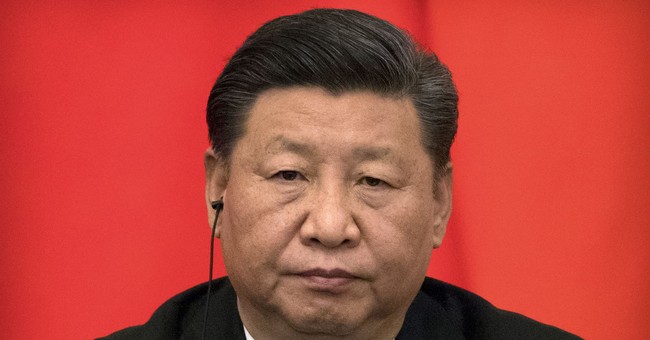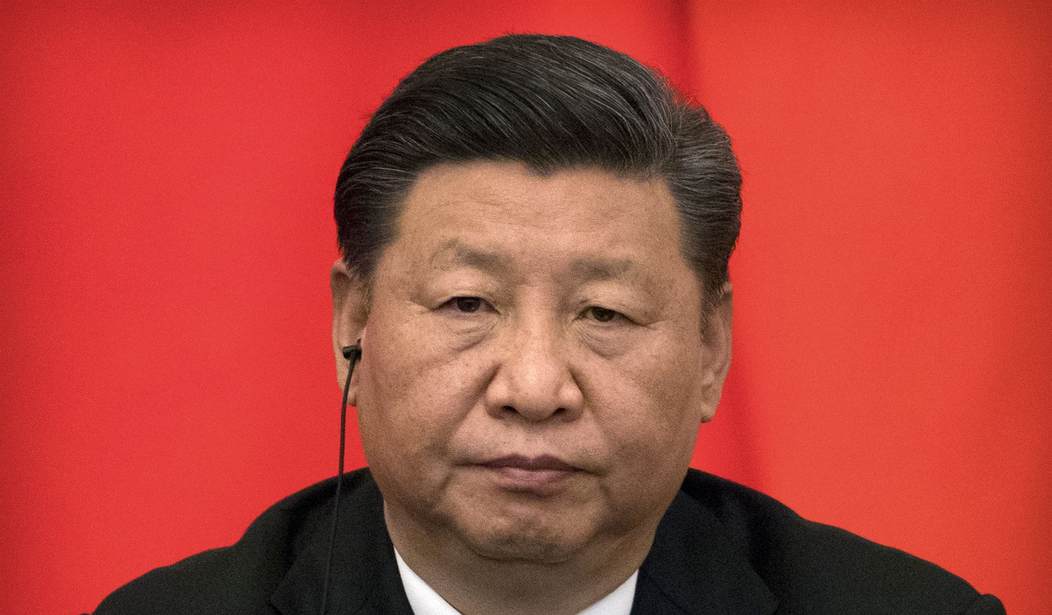
FILE – In this June 8, 2018, file photo, Chinese President Xi Jinping attends a signing ceremony at the Great Hall of the People in Beijing. Just months after clearing the way to rule in perpetuity president and ruling Communist Party leader Xi Jinping is best by a wave of economic, foreign policy and domestic political challenges. (AP Photo/Mark Schiefelbein, File)
Chinese President Xi Jinping’s unwise decision to repress the flow of information about the Wuhan virus will have lasting consequences for his country. In remarks before The Heritage Foundation earlier this month, US National Security Adviser Robert O’Brien said that China’s cover-up “probably cost the world community two months to respond.” Had the CPC been truthful, he added, “I think we could have dramatically curtailed what happened in China and what’s now happening across the world.”
(Note: For a timeline of China’s efforts to suppress the truth, please view “The Washington Post Runs a Shameless CIA Authored Hit Piece to Blame President Trump for the Spread of Wuhan Virus.”)
Chinese whistleblowers were silenced. Some simply disappeared. The government “clamped down on social media to prevent both information about the virus and criticism of the Communist Party and government from spreading.
Now that the virus has spread internationally and has caused everything from illness and death to economic devastation, the CPC is trying to rewrite history by accusing U.S. soldiers of bringing the virus to Wuhan, another ill-advised decision.
Last week, I posted here about World Health Organization Director-General Tedros Adhanom Ghebreyesus, who turned a blind eye to Xi’s lies and corruption. Tedros waited until March 11 to declare the coronavirus a global pandemic and has even “thanked China for making us safer.”
Why is Tedros so beholden to China? Because his home country of Ethiopia is economically dependent upon China.
Fox News‘ Barnini Chakraborty explains:
Beijing has shelled out hundreds of millions of dollars for mega-projects including a new $160 million national sports stadium in Addis Ababa, Ethiopia’s largest city and capital.
“China is building the city from the ground up,” Welibuw Buzenehe, a local food merchant in the area, told Politico. “Without China, not much would happen around here.”
China has also become Ethiopia’s largest trading partner.
But lately, China hasn’t been happy with its investments in Ethiopia after projects like the railway line failed to generate the kind of cash developers had hoped. If China pulls out of Ethiopia, the African country’s economy could crumble — something Tedros is desperate to avoid.
Fortunately, the U.S. is not in the same position and President Trump is not afraid to confront China’s leaders as his predecessors were.
Previous administrations had long overlooked China’s duplicity for the sake of appeasing both the Chinese government and U.S. business organizations such as the Chamber of Commerce, whose members didn’t want to lose access to China’s “fast-growing consumer market or to the country’s cheap labor.”
China’s intellectual property theft, according to an investigation led by Trade Representative Robert Lighthizer prior to Trump’s efforts to stop it, cost the U.S. “between $225 billion and $600 billion annually.”
While it can’t be said that President Trump trusted CPC leaders, after calling out the country’s long history of intellectual property theft and establishing new, more equitable terms of trade, he was trying to build a sustainable, working relationship with them.
There can be no doubt that the President, along with other world leaders will be reassessing just how involved with China they want to be once this crisis is over.
Given China’s military might, there will be limits on what steps can be taken to hold the country accountable. But at the very least, the U.S. (and likely other nations) will reduce our reliance on China for products which leave us vulnerable in a time of need, the most glaring example being pharmaceuticals and the ingredients necessary to produce them.
After working for decades to elevate their stature on the world stage, China’s decision to first suppress the truth about the virus, and then to actually accuse the U.S. of originating it, even demanding an apology, will set them way back.
Michael Auslin, a fellow at the Hoover Institution, writes:
At stake is China’s global reputation, as well as the potential of a fundamental shift away from China for trade and manufacturing. Also at risk is the personal legacy of General Secretary Xi Jinping, who has staked his legitimacy on his technocratic competence. After dealing with the first great global crisis of the 21st century, the world must fundamentally rethink its dependence on China.
…
Xi and the Communist Party care about dominating the propaganda war because the Wuhan virus has stood their nation on a razor’s edge. Xi’s own legitimacy is not merely at stake. His government is ferociously fighting to divert blame and attention, fearing that the world rightfully may utterly reassess modern China, from its technocratic prowess to its safety. Decades of a carefully curated global image may crumble if nations around the globe start paying attention to China’s lax public health care, incompetent and intrusive government, and generally less developed domestic conditions.
Xi’s fears are well founded, as a global reconsideration of China is long overdue. Legitimate criticisms and doubts about China’s governance and growth model were long suppressed by Chinese pressure and the willingness of many to buy into the Communist Party’s public line. Public shaming of foreign corporations, global influence operations, and “elite capture” — all are policies Beijing has deployed to maintain China’s public image.
That carefully tended image is now cracked.
Auslin also makes the point that the world may want to rethink “globalization” as well. “Decades of open borders, unceasing intercontinental travel, study abroad, just-in-time inventory systems, and the like have created unexpected vulnerabilities in populations and economies thanks to unfettered openness.” How dependent on other nations do we really want to be? Especially on countries like China who have endlessly proven themselves to be untrustworthy. He continues:
Those who assumed that global markets were the optimal economic model and would always work, now have to consider whether globalization is the best system for dealing with pandemics like coronavirus, let alone old-fashioned state power plays like China imposed on Japan back in 2010, when it blocked the export of rare-earth minerals over territorial disputes in the East China Sea. Perhaps the biggest long-term economic effect of coronavirus will be on long-standing assumptions about global supply chains.
As Sens. Marco Rubio and Tom Cotton have pointed out, America and the world have a prudential responsibility to reconsider their dependence on China.
By the time we are through it, this pandemic will have changed the world in ways large and small. By now, President Xi and others in the CPC realize the damage they’ve inflicted upon their country, themselves, and their plans for world domination. The hit to their economy, which they thought would continue moving upward forever, will be greater than they ever dreamed it would be. But worst of all will be the hit to their reputation on the global stage.














Join the conversation as a VIP Member